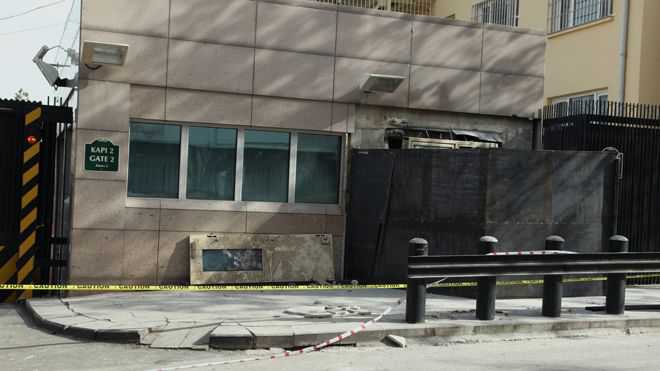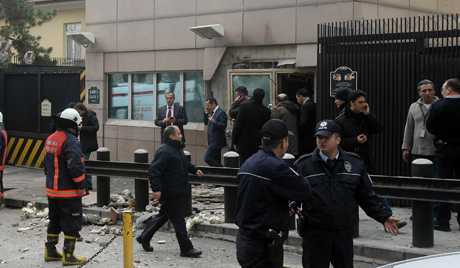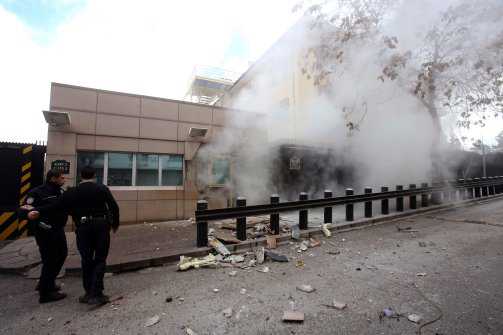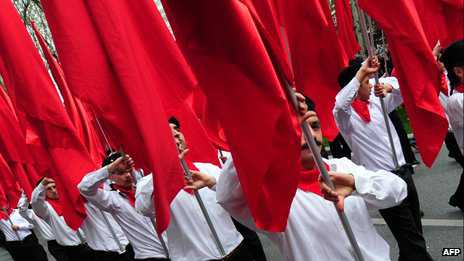By ALYSSA NEWCOMB (@alyssanewcomb) and NICK SCHIFRIN (@nickschifrin)
Feb. 5, 2013

Sarai Sierra, from New York, has been missing in Turkey since Jan. 21, 2013. (Courtesy Sarai Sierra’s family)
The family of Sarai Sierra, an amateur New York photographer slain while on a trip to Turkey, put her photos up for sale today and quickly sold enough photographs to pay forher funeral, the woman’s brother said today.
The photos remain on sale and the profits will now be going to her two young sons, the family said.
Sierra, 33, was found bludgeoned to death near a highway in Istanbul on Saturday. Her iPhone and iPad, the tools she used to share her photos with her thousands of Instagram followers were reportedly missing.
The Staten Island mother of two traveled to Turkey alone on Jan. 7 after a friend had to cancel. It was Sierra’s first overseas trip, and she kept in contact with her family the entire time, they said, sharing stories of her journey and posting photos online.
“Sarai’s passion for photography and love for capturing the beauty we see in culture, architecture and scenery was her reason for traveling to Istanbul,” her brother, David Jimenez, wrote on a website set up to sell his sister’s photography.
Among the photos for sale are Istanbul sunsets, and shots of Sierra’s beloved New York City.
By this afternoon, Jimenez put out another message saying, “Hey Instacanvas, Thank you for all the support in purchasing Sarai’s pictures. Quick update, all expenses for Sarai’s funeral have been paid for! From here on out any picture of hers that you purchase will NOT be going towards her funeral. All funds will be going to her children. Thank you for your support. David”
Sierra had been scheduled to arrive home at Newark Liberty International Airport on Jan. 22. When her husband, Steven Sierra, called the airline, he was told his wife never boarded the flight from Istanbul.
Steven Sierra and Jimenez traveled to Istanbul to aid in the search.
An intense two week search for for Sarai Sierra ended when her battered body was found.
An autopsy was completed Sunday, but results aren’t expected for three months. Turkish officials however said Sierra was killed by at least one fatal blow to her head.
A casket holding the Staten Island mother was taken to a Istanbul church Monday where it remains as Sierra’s family makes arrangements to bring her home.
Turkish police hope DNA samples from 21 people being questioned in the case will be key to finding the perpetrators, state media reported. A motive is not yet clear.
“They’re still investigating so they might think it might be a robbery, but they’re not sure,” said Betsy Jimenez, Sierra’s mother, said Monday.
The family also faces the heartbreaking task of telling Sierra’s two sons, ages 11 and 9, that their mother is dead.
The boys have been under the impression that their father has gone to Turkey to bring their mother home – alive.
“It’s going to be the hardest thing he’s ever going to have to do in his life,” said Rep. Michael Grimm, (R-NY) who added that the Staten Island family isn’t sure when Steven Sierra will be able to bring his wife’s body home.
ABC News’ Josh Haskell contributed to this report.
via Sarai Sierra’s Photos Become Big Sellers As Family Puts Them Online – ABC News.





